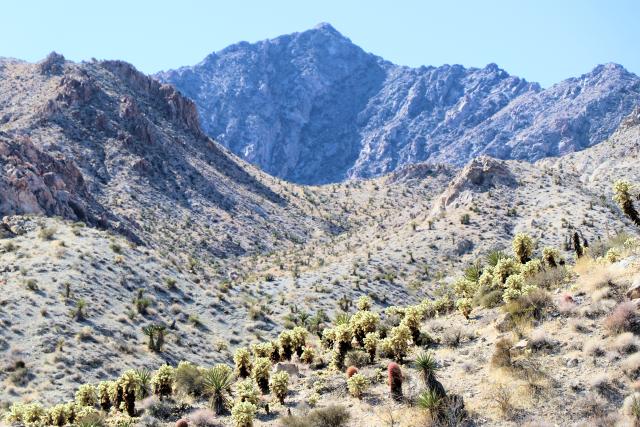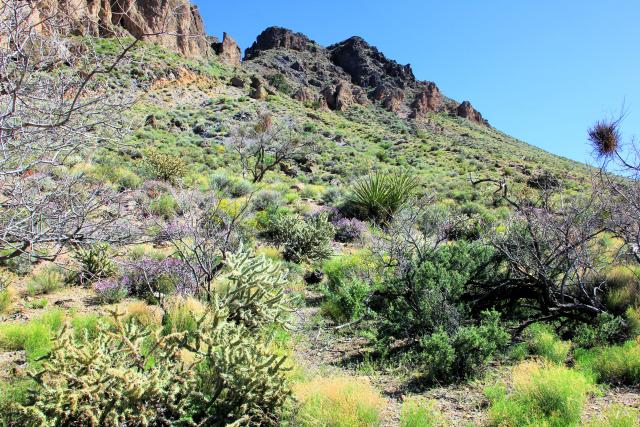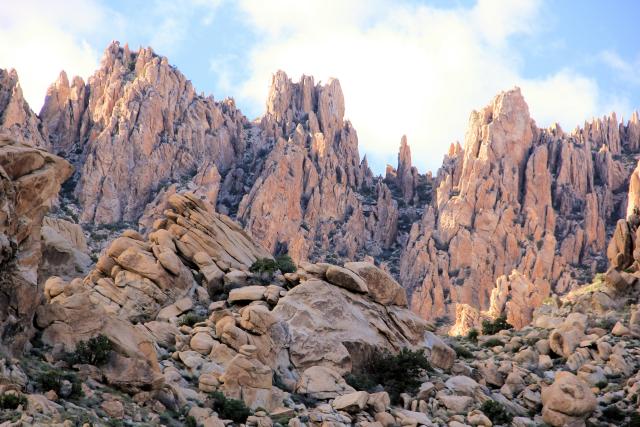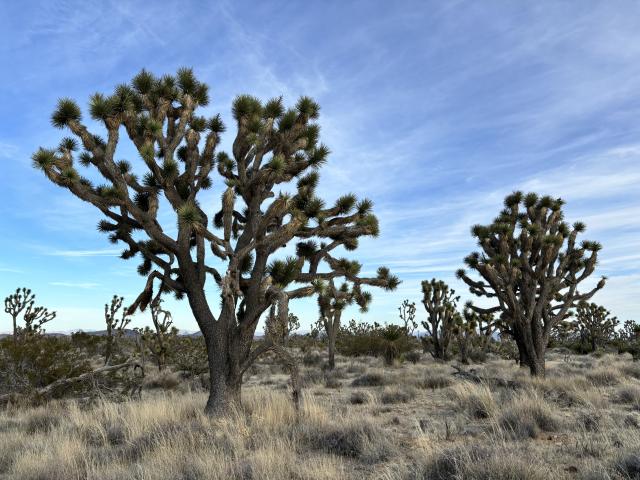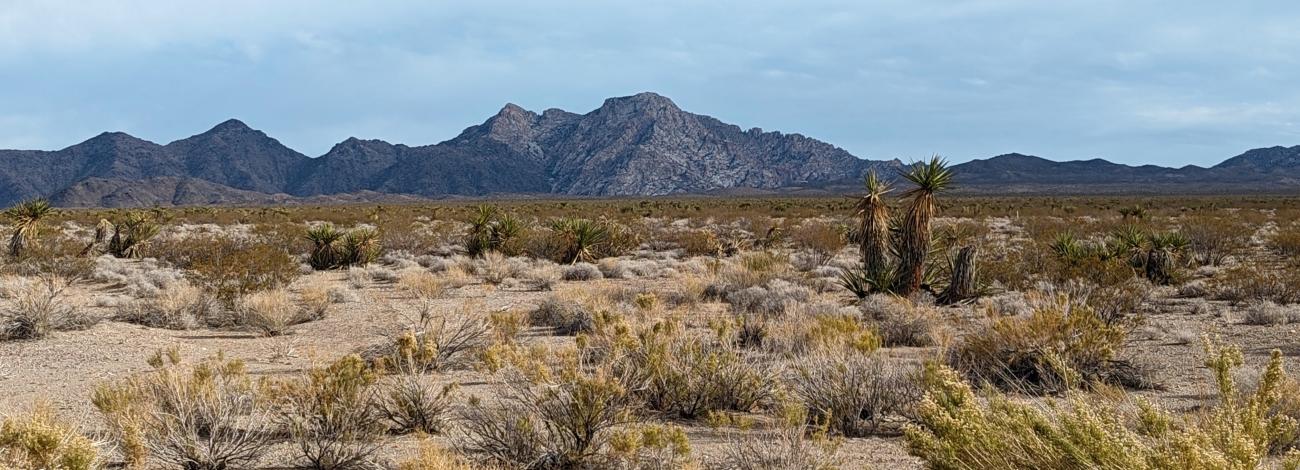
Avi Kwa Ame National Monument
Information on current fire restrictions can be found at https://www.nevadafireinfo.org/restrictions.
Avi Kwa Ame (also known as Spirit Mountain) is considered to be among the most sacred places on Earth by the Mojave, Chemehuevi, and some Southern Paiute people. It is also important to Tribal Nations and Indigenous Peoples including the Cocopah, Halchidhoma, Havasupai, Hopi, Hualapai, Kumeyaay, Maricopa, Pai Pai, Quechan, Yavapai, and Zuni Tribes. The area is also home to expansive Joshua tree forests and provides important habitat for species such as the desert bighorn sheep, desert tortoise and Gila monster.
The Avi Kwa Ame National Monument designation protects sacred space for spiritual uses, including Spirit Mountain, which is central to the creation story of many Tribal Nations, while ensuring continued access to hunting, camping, hiking, OHV use, photography and other recreational activities. Hunting, trapping, wildlife watching, aerial surveys, wildlife infrastructure installation and maintenance and a wide range of other wildlife management activities will continue to be allowed within the national monument.
The national monument spans approximately 506,814 acres of lands managed by the Interior Department’s Bureau of Land Management, Bureau of Reclamation and National Park Service. All of the land reserved by the proclamation is currently owned by the Federal government; existing State and private lands within the boundary are not included in the monument.
The Avi Kwa Ame landscape includes the McCullough and Lucy Gray Mountains in the west; the Piute and Eldorado Valleys, split by the Highland Mountains, in the center; the Castle and Dead Mountains in the south; and the Eldorado Mountains and the monument namesake, Avi Kwa Ame, part of the Newberry Mountains, in the east.
The national monument designation recognizes and respects valid existing rights. The proclamation specifies that maintenance and upgrades to water infrastructure for flood control, utilities, water district facilities, wildlife water catchments and other uses may continue; and that transmission lines, pipelines and roads can continue to be maintained and upgraded. The proclamation allows for military, commercial and private flights in and out of existing or future airports in the area. It also does not change the class II air quality designation for the area or affect the State’s authority over administering air quality designations.
